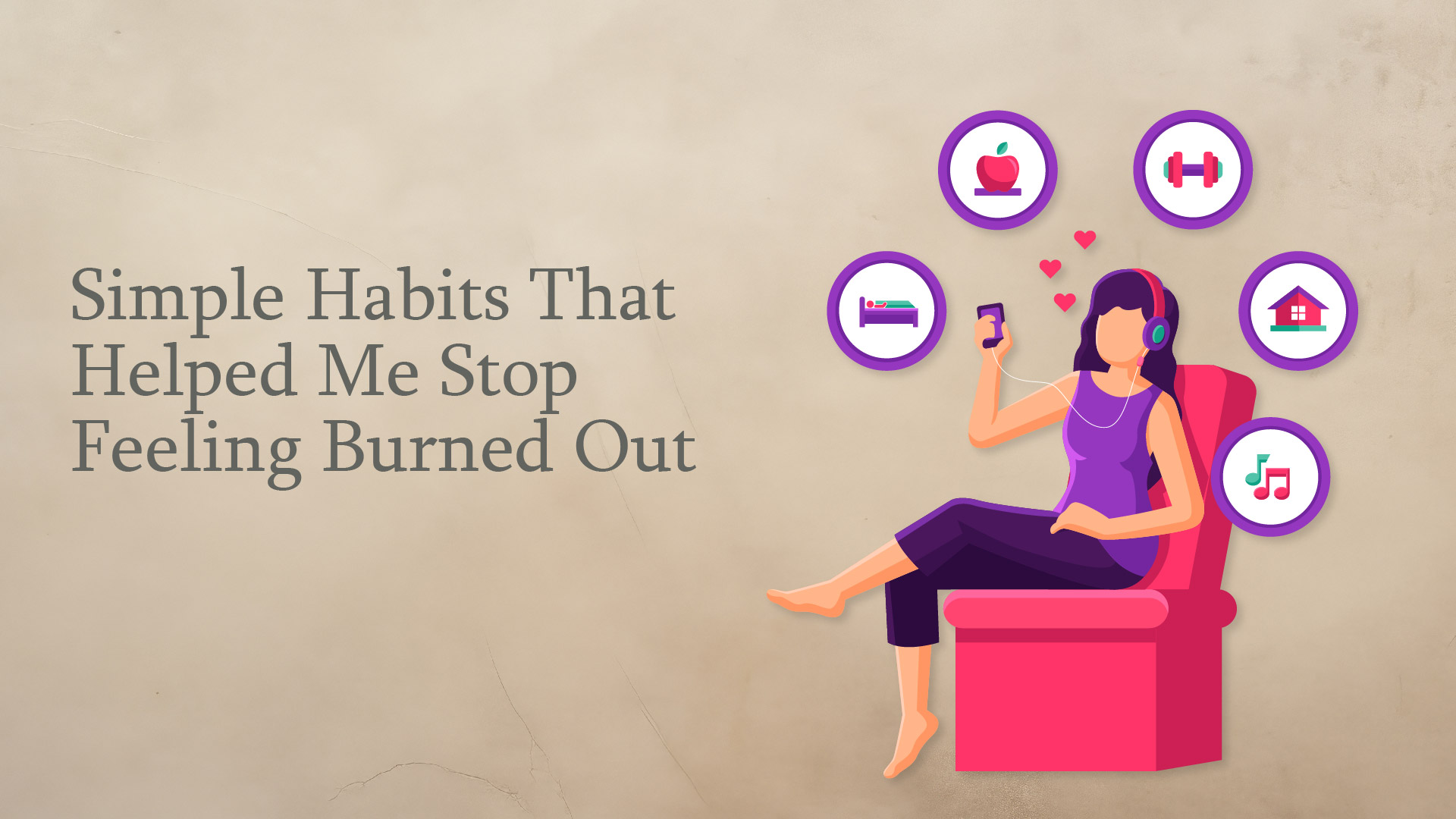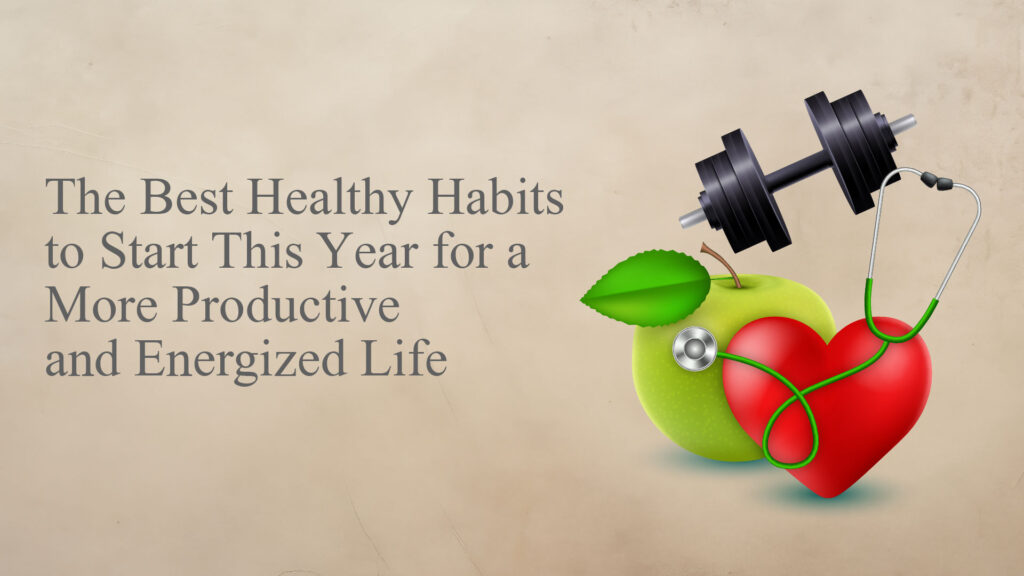
There was a time when I woke up every morning already exhausted. My coffee cup felt like a lifeline, my inbox looked like an enemy, and my energy levels never seemed to recharge. I told myself, “I’m just tired,” but the truth was deeper — I was feeling burned out.
Burnout isn’t just about being busy or stressed; it’s a heavy, ongoing exhaustion that seeps into your mind, emotions, and body. If you’ve ever said, “I am burnt out” or wondered why you feel emotionally burned out, you’re not alone. Research from the World Health Organization (WHO) recognizes burnout as a workplace phenomenon caused by chronic stress that hasn’t been successfully managed.
The good news? You don’t need a complete life overhaul to recover. For me, the turning point came when I started making simple habits part of my daily routine. These small, intentional changes restored my mental health, boosted my energy, and reminded me how good life can feel when balance is restored.
In this post, I’ll share:
- What burnout really is (and how it’s different from just being tired)
- The burnout symptoms you should watch for
- The simple habits that helped me stop feeling burned out
- Expert-backed techniques of stress management you can start today
Understanding Burnout – What It Really Means
What is Burnout?
Burnout is a state of physical, mental, and emotional exhaustion caused by prolonged stress. It’s not just about a rough week at work — it’s a persistent feeling that you’re drained, unmotivated, and unable to cope.
According to the American Psychological Association, burnout can impact both physical health and mental health, increasing the risk of anxiety, depression, and even cardiovascular problems.
Signs of a Burnout
Here are some common burnout symptoms to watch for:
| Burnout Symptom | Physical Impact | Mental Impact |
| Constant fatigue | Weakened immune system | Persistent negative thinking |
| Sleep disturbances | Hormonal imbalance | Reduced ability to focus |
| Frequent headaches | Muscle tension | Lack of motivation |
| Irritability | Digestive issues | Feeling emotionally disconnected |
If you recognize multiple symptoms from the table above, it could be a sign that you’re not just stressed — you’re feeling burnt out and might need to prioritize your mental well-being immediately.
Why Burnout Happens – Root Causes You Might Overlook
Burnout doesn’t happen overnight. It builds slowly, like a quiet leak in your energy reserves, until you finally realize you’re running on empty. Understanding why you’re feeling burned out is the first step toward reversing it.
Here are some of the most common root causes:
- Workplace Overload
- Constant deadlines, unrealistic expectations, and back-to-back meetings can make you feel trapped in a never-ending cycle.
- Poor Work-Life Balance
- If your laptop never truly closes, your brain never gets the downtime it needs for mental well-being.
- Neglecting Physical Health
- Skipping meals, lack of exercise, and poor sleep weaken your body — and since physical health and mental health are deeply connected, your mood and energy suffer too.
- Lack of Stress Management Techniques
- Without effective techniques of stress management, stress doesn’t just pass — it piles up.
- Digital Overload
- Endless scrolling, constant notifications, and overexposure to bad news can drain your emotional reserves faster than you think.
- Emotional Isolation
- Feeling unsupported or disconnected from others can make you emotionally burned out even faster.
Stat to know: According to Gallup’s State of the Global Workplace Report, 44% of employees experience daily stress, and those with poor work-life balance are twice as likely to report burnout symptoms.
My Turning Point – Realizing I Was Burnt Out
For weeks, I brushed off my exhaustion, blaming it on “just a busy season.” But one day, I caught myself staring blankly at my computer screen for almost 10 minutes, unable to type a single word. My mind wasn’t just tired — it was empty. That was my “I am burnt out” moment.
I had the signs of a burnout:
- Constant fatigue
- Irritability over small things
- Zero motivation for work or hobbies
- A sense of detachment from friends and family
The truth hit me — I wasn’t lazy, I wasn’t unmotivated, and I wasn’t broken. I was simply burned out. And if I didn’t change something soon, my mental health and physical health would take a bigger hit.
That’s when I decided to experiment with simple habits — small, consistent changes I could realistically stick to, even on bad days. These weren’t big, life-changing resolutions; they were bite-sized shifts that slowly rebuilt my energy, focus, and optimism.
Simple Habits That Helped Me Stop Feeling Burned Out
Recovering from burnout doesn’t require a complete lifestyle overhaul — small, consistent changes can make a big difference. These simple habits helped me regain my energy and improve my mental well-being.
- Morning Mindfulness – Just 5 minutes of meditation or journaling before screens helps calm the mind and sets a positive tone for the day.
- Set Micro-Goals – Break your day into 3 main tasks to avoid overwhelm and boost motivation.
- Digital Detox – Take at least one hour offline daily to reduce mental overload.
- Daily Movement – Light exercise like walking or stretching improves both physical health and mental health.
- Eat to Recharge – Balanced meals and hydration stabilize energy and focus.
- Positive Thinking Practice – End each day with one small win to train your brain toward optimism.
- Stay Connected – Regular conversations with friends or family help prevent emotional burnout.
Techniques of Stress Management That Actually Worked for Me
While the simple habits I adopted made a huge difference in my mental well-being, I also needed specific tools to manage stress in the moment. These techniques helped me shift from feeling burned out to feeling more grounded and in control.
1. 4-7-8 Breathing Technique
This simple breathing method, recommended by Dr. Andrew Weil, works like an instant “reset” button for the nervous system.
How to do it:
- Inhale quietly through your nose for 4 seconds.
- Hold your breath for 7 seconds.
- Exhale completely through your mouth for 8 seconds.
- Repeat for 4 cycles.
💡 Why it works: Slows the heart rate, lowers cortisol (the stress hormone), and improves focus.
2. Gratitude Journaling
When I was emotionally burned out, my mind only saw what was going wrong. Writing down 3 things I was grateful for each day retrained my brain toward positive thinking.
💡 Why it works: Studies from the University of California show gratitude improves mood, reduces stress, and even improves sleep quality.
3. Progressive Muscle Relaxation (PMR)
Burnout often left my shoulders tense and my jaw clenched without realizing it. PMR helped release physical tension.
How to do it:
- Starting from your toes, tense each muscle group for 5 seconds, then release for 10 seconds. Move upward through the body until you reach the face.
💡 Why it works: Improves the physical health and mental health connection by signaling safety to the nervous system.
4. Mindful Breaks
Instead of pushing through exhaustion, I take 5–10 minutes to step away from my desk, stretch, or drink water.
💡 Why it works: Short breaks improve productivity, reduce eye strain, and help manage burnout symptoms.
5. Seeking Professional Support When Needed
While lifestyle changes help, there were times I needed expert guidance. Speaking to a therapist gave me coping tools I wouldn’t have found on my own. In severe cases, a doctor may recommend stress medication — but always under professional supervision.
💡 Why it works: Professional support ensures you’re tackling burnout from all angles — physical, emotional, and mental.
Stat to know: According to the American Institute of Stress, 77% of people experience stress that affects their physical health, and 73% experience stress that impacts their mental health.
When to Seek Professional Help
While simple habits and techniques of stress management can greatly reduce burnout, there’s a point where you might need more than lifestyle changes. I learned this the hard way — ignoring severe burnout symptoms only made recovery harder.
Here are signs it’s time to get professional support:
- You feel emotionally burned out most days and can’t find relief.
- You’ve lost interest in activities that once brought joy.
- You experience constant fatigue, even after adequate rest.
- Your work performance or relationships are suffering.
- You’re considering stress medication without consulting a doctor.
Where to start:
- Talk to your primary care physician or a licensed therapist.
- Use mental health helplines if you’re in crisis (e.g., 988 Suicide & Crisis Lifeline in the U.S.).
- Check your workplace benefits for Employee Assistance Programs (EAPs).
💡 Remember: Seeking help isn’t a sign of weakness — it’s a commitment to your mental health and mental well-being.
Quick Burnout Self-Assessment Table
If you’re unsure whether you’re simply stressed or truly feeling burnt out, use this quick self-check. Answer honestly:
| Question | Yes | No |
| Do you feel drained or tired most of the time? | ||
| Have you lost motivation for work or hobbies? | ||
| Do you feel detached or cynical about your job? | ||
| Are you having trouble concentrating? | ||
| Have you noticed more physical symptoms like headaches or muscle tension? |
✅ Scoring Tip: If you answered “Yes” to 3 or more, you may be experiencing burnout symptoms. It’s a sign to start implementing simple habits now — and consider professional guidance if symptoms persist.
Final Thoughts – Choosing Mental Well-Being Every Day
Recovering from feeling burned out doesn’t happen overnight. It’s not about one big change; it’s about a series of simple habits that slowly rebuild your energy, optimism, and sense of control over your life.
I learned that burnout isn’t a personal failure — it’s a signal. A signal that your body, mind, and heart are asking for care, balance, and rest. By paying attention to the signs of a burnout and making small, consistent changes, you can protect your mental health, strengthen your physical health and mental health connection, and rediscover the joy in daily life.
Your journey might start with something as small as a 5-minute breathing exercise or a short walk outside. What matters most is that you start today. Future you will thank you for it.
Frequently Asked Questions (FAQs)
Q: What are the first signs of burnout?
A: Early burnout symptoms often include constant fatigue, irritability, difficulty focusing, and loss of motivation. Physical signs can include headaches, muscle tension, and sleep disturbances.
Q: Can stress medication help with burnout?
A: In some cases, doctors may prescribe stress medication to manage anxiety, depression, or severe stress. However, medication should always be paired with lifestyle changes and used under professional guidance.
Q: How does positive thinking improve mental health?
A: Positive thinking reduces stress, boosts resilience, and improves problem-solving abilities. According to Mayo Clinic, optimism is linked to better heart health and lower rates of depression.
Q: What’s the difference between feeling burned out and being depressed?
A: Burnout is often work or situation-related and improves with rest and habit changes, while depression can persist regardless of circumstances and may require therapy or medication. However, the two can overlap — so professional evaluation is important.
Q: Can simple habits really reverse emotional burnout?
A: Yes. While recovery takes time, consistent simple habits like mindfulness, exercise, and social connection can significantly improve mental well-being and help reverse feeling burnt out.


